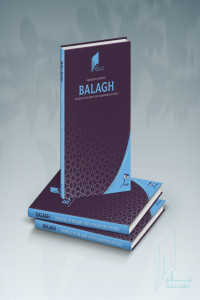Criminalization controls in Islamic criminal jurisprudence
Criminalization controls in Islamic criminal jurisprudence
criminalization, punishment discretionary punishment, jurisprudence.,
___
- األحكام السلطانية والواليات الدينية، أبو الحسن علي بن محمد بن حبيب البصري البغدادي الماوردي الوفاة: 450هـ، دار النشر: دار الكتب العلمية - بيروت - 1405هـ- 1985م.
- بدائع الصنائع في ترتيب الشرائع، اسم المؤلف: عالء الدين الكاساني الوفاة: 587 ،دار النشر: دار الكتاب العربي - بيروت - 1982 ،الطبعة: الثانية.
- تبصرة الحكام في أصول األقضية ومناهج األحكام، لبرهان الدين أبي الوفاء إبراهيم ابن اإلمام شمس الدين أبي عبد اهلل محمد بن فرحون اليعمري، دار الكتب العلمية - لبنان/ بيروت - 1422هـ - 2001م.
- تبين الحقائق شرح كنز الدقائ ق، اسم المؤلف: فخر الدين عثمان بن علي الزيلعي الحنفي. الوفاة: 743 ،دار النشر: دار الكتب اإلسالمي. - القاهرة. - 1313هـ.
- التشريع الجنائي اإلسالمي مقارنا بالقانون الوضعي، للدكتور عبد القادر عودة.
- التعزير ضوابطه العامة وتطبيقاته في المملكة العربية السعودية، للدكتور عبد الفتا ح خضر.
- الجريمة والعقوبة في الفقه اإلسالمي (الجريمة)، لإلمام محمد أبو زهرة، دار الفكر العربي، القاهرة، طبعة: 1998م.
- حاشية رد المحتار على الدر المختار شرح تنوير األبصار، تأليف: ابن عابدين، دار النشر: دار الفكر للطباعة والنشر. - بيروت. - 1421هـ - 2000م.
- الخرشي على مختصر سيدي خليل، لمحمد بن عبداه الخرشي، دار الفكر للطباعة – بيروت.
- الذخيرة، اسم المؤلف: شهاب الدين أحمد بن إدريس القرافي الوفاة: 684 ،دار النشر: دار الغرب - بيروت - 1994م.
- Başlangıç: 2021
- Yayıncı: Karabük Üniversitesi
Jawi Writing in Al-Quran and Al-Sunnah Subject at Secondary School; Issues and Challenges
Amrina Rasyada Binti KAMARUZAMAN, Nik Md Saiful Azizi B Nik ABDULLAH
Models for Some Judicial Systems Since the Creation of Mankind to a Good Mission Wilderness
Hossam Moussa Mohamed SHOUSHA, Ashraf MAHMOOD
Linguistic identity in Palestine between the danger of loss and the inevitability of survival
السيد محمد سالم, رجب إبراهيم أحمد عوض
Separation Between Spouses Due to Contagious Diseases and its Evidence
Hossam Moussa Mohamed SHOUSHA, Radhwan Hasan ALI
Criminalization controls in Islamic criminal jurisprudence
Younus Saeed HUSSEİN, Khaled Zin Alabdin DERSHWİ
Contemporary Trends in Criticism of Companions: An Analytical Descriptive Study
